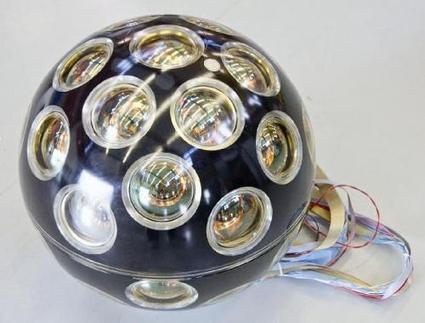Experiments on animals have been the subject of criticism for decades, but there is no prospect of a move away from them any time soon. The number of tests involving laboratory animals has in fact gone up. Now, researchers have found an alternative approach: they hope sensor nanoparticles will reduce the need for animal testing.
Research and publish the best content.
Get Started for FREE
Sign up with Facebook Sign up with X
I don't have a Facebook or a X account
Already have an account: Login

 Your new post is loading... Your new post is loading...
 Your new post is loading... Your new post is loading...
|
|













